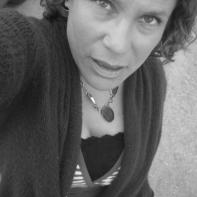 Frances Lefkowitz is the author of To Have Not, named one of five “Best Memoirs of 2010” by SheKnows.com. It’s the story of growing up poor in San Francisco in the ’70s, going to the Ivy League on scholarship, and discovering the downside of upward mobility. Her stories and articles are published in The Sun, Tin House, Blip, Utne Reader, Good Housekeeping, Whole Living, Health, GlimmerTrain Stories, and more. She has received honorable mention twice for the Pushcart Prize and once for Best American Essays. Frances now lives, and surfs, in Northern California.
Frances Lefkowitz is the author of To Have Not, named one of five “Best Memoirs of 2010” by SheKnows.com. It’s the story of growing up poor in San Francisco in the ’70s, going to the Ivy League on scholarship, and discovering the downside of upward mobility. Her stories and articles are published in The Sun, Tin House, Blip, Utne Reader, Good Housekeeping, Whole Living, Health, GlimmerTrain Stories, and more. She has received honorable mention twice for the Pushcart Prize and once for Best American Essays. Frances now lives, and surfs, in Northern California.
Frances
Let’s start with the obvious question. How can you call these things essays? They read more like prose poems or flash fiction.
Frances
I let other people decide what they are, where they should be shelved. I’m not trying to cause trouble or blur borders, but right now my writing is coming out in little blocks of text that tell a story and some of those stories are true and some are made up. The two pieces in this issue, “Mine Sounded Like an Earthquake” and “Thorns” are true stories, which, I guess is another way of saying “essay.” And since they’re about me, we could even call them “micro memoir” or “personal essaylettes” or . . . ?
Frances
Do you ever get accused of being a poet?
Frances
Occasionally, but I always deny it. Recently I read at an event with Ishmael Reed; he approached me afterward and asked if he could publish one of my “poems.” I was honored but confused. Part of the reason I don’t think I qualify as a poet is that I know so little about poetic forms, and the old-fashioned nitpicker in me feels that a real poet should be able to write a cinquain or villanelle—or at least be able to recognize them.
Frances
OK, enough about categories. Let’s talk about self-absorption. As the author of a memoir (To Have Not), numerous personal essays, these new micro-memoirs, and now an interview with yourself, how can you defend against this charge?
Frances
For the record, I would like to point out that at least my fiction is not thinly-veiled autobiography. When I make things up, they’re not about me. Otherwise, my defense is that I see myself as a sort of Everywoman. So it’s not that my hobbies or heartbreaks are more interesting or important than anyone else’s. It’s that they are in many ways representative. I never called my book a memoir (here we go again with categories) until the publisher labeled it so. But I still describe it as not so much about me as about my take on the world. I use myself as a guinea pig, to explore how money, say, or lust, or geology, or striving, or other facts of life play out on a person trying to make it in this world.
Frances
Sounds lofty.
Frances
Nah, it’s just telling stories.
Frances
So you don’t set out to write about a social or psychological issue? In “Thorns,” for example, did you start with the idea to write about how love fades, and how the fight against that fading leads some people to extremes?
Frances
Not at all. I don’t start with an idea at all. I start with the urge to tell a story. Sometimes I don’t even start with that much; I just have a voice that’s demanding to speak, and the story unfolds as I let her speak. Later I can switch brains and see a theme or statement, but at the time I’m just following urgency. But the urgency is there precisely because the feeling or situation is universal and compelling, is much larger than myself.
Frances
So, write the story, then see what it’s about.
Frances
I couldn’t have said it better myself.